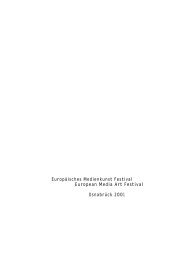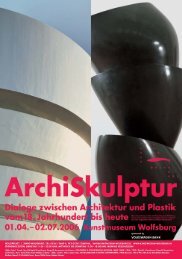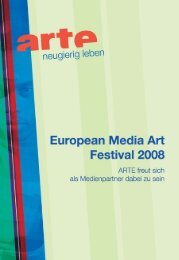EUROPEAN MEDIA ART FESTIVAL OSNABRUECK 2011 - Emaf
EUROPEAN MEDIA ART FESTIVAL OSNABRUECK 2011 - Emaf
EUROPEAN MEDIA ART FESTIVAL OSNABRUECK 2011 - Emaf
You also want an ePaper? Increase the reach of your titles
YUMPU automatically turns print PDFs into web optimized ePapers that Google loves.
Commentary is a clever game of deception<br />
and commentary on a contemporary viewing<br />
regime which has, for the most part, rarely<br />
been dealt with in cinematography: As if in<br />
an effective final point, Cambrinus promises<br />
a version of the film without audio commentary<br />
as a DVD extra. The remaining credits<br />
are accompanied by the characteristic embarrassed<br />
sighing that’s audible on DVD<br />
soundtracks when the person doing the<br />
commentary has nothing more to say.<br />
(Christoph Huber)<br />
Robert Cambrinus, *1965 in Vienna, Austria,<br />
lives and works in London. 1987 University of<br />
Economics, Vienna (Magister). 1990 Erasmus<br />
Universität, Rotterdam (Diploma - European<br />
Studies). 1992 MIT Sloan School, Cambridge<br />
(Master of Science).1996 University of Economics,<br />
Vienna (Doctorate). 2002 East 15 Acting<br />
School, London (Diploma - Media Course).<br />
›I was a business consultant, a director of an<br />
industrial group, and the owner of a factory. In<br />
2000 I gave up my business career to study<br />
film acting. In 2002 I got my first acting job in<br />
a BBC series and have been a working actor<br />
ever since. In 2005 I made my first short film<br />
as writer/director - a turning point. I had<br />
found my medium to both express myself creatively<br />
and retain control over the outcome.<br />
Consequently, the relationship between the<br />
author and his work plays a central role in my<br />
films.‹<br />
�A / GB 2009, Video, 15:00<br />
�Director, script Robert Cambrinus<br />
�Camera Cheung Jun Keung<br />
�Editing Nathan Cubitt<br />
�Distribution sixpackfilm<br />
SATELLITE,<br />
AS LONG AS IT IS AIMING AT THE SKY<br />
Nasrin Tabatabai & Babak Afrassiabi<br />
Wir betreten die Welt der iranischen Satelliten-Fernsehsender<br />
in Los Angeles. Das Video informiert über Geographie, Gemeinschaft<br />
und Politik in einem kritischen Zustand. Ursprünglich als<br />
Exil-Fernsehen konzipiert, schaffen diese Sender ein televisuelles<br />
Mikrouniversum, das ihre (kulturellen, geographischen<br />
und politischen) Defizite kompensiert, indem sie ständig auf<br />
ihre eigene Produktion und den eigenen Empfang hinweisen<br />
und davon berichten. Diese ›Selbstvermittlung‹ erzeugt ein Gefühl<br />
von Direktheit und ›vor Ort sein‹ bei den Sendern, was sich<br />
zu Zeiten politischer und wirtschaftlicher Unruhen noch verstärkt.<br />
Das Video zeigt diese Fernsehsender während der Wahlen<br />
im Iran 2009. Die politische Krise im eigenen Land geht auch<br />
an den Sendern nicht vorbei und beschreibt wiederum auch deren<br />
eigene Krise.<br />
We enter the Los Angeles-based Iranian satellite TV stations.<br />
The video is a mediation of geography, community and politics<br />
in a critical state. Initially exile television stations, they generate<br />
a tele-visual micro universe that compensates for their (cultural,<br />
geographical and political) deficits by constantly referring<br />
to and commenting on its own production and reception. This<br />
›self-mediation‹ produces a sense of immediacy and locality<br />
across the TV stations, which increases at times of political and<br />
economic upheaval. The video captures these TV stations during<br />
the time of the 2009 elections in Iran. The political crisis at<br />
home inevitably enters these stations and, in turn, articulates<br />
the TV stations’ own crisis.<br />
Nasrin Tabatabai and Babak Afrassiabi are artists based in the<br />
city of Rotterdam; they work in both Iran and the Netherlands. In<br />
addition to their individual artistic activities, they initiated a<br />
long-term project called Pages in 2004. The Pages project is defined<br />
through various activities, such as the publication of a<br />
bilingual Farsi/English magazine, video and installation works<br />
and architectural proposals.<br />
�NL 2010, Video, 28:50<br />
�Realisation Nasrin Tabatabai, Babak Afrassiabi<br />
�Distribution Pages Project/Magazine<br />
55












